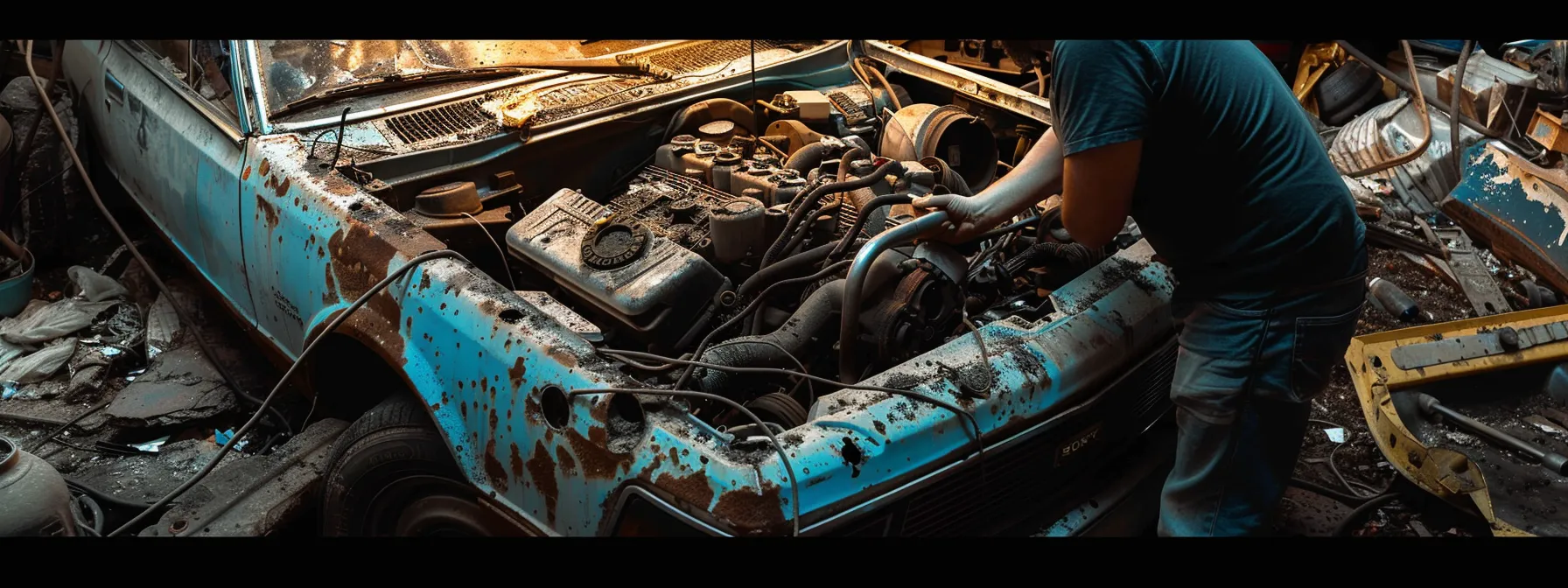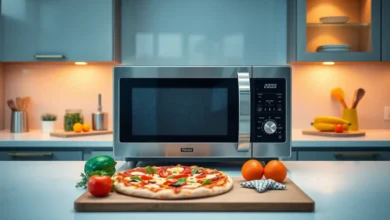The Ultimate Guide to Scrapping Your Old Junk Car

Many of us have found ourselves with an old car that’s more rust than roadworthy, taking up valuable space in the driveway or garage. But even in this dilapidated state, your junk car still holds some value. Scrapping your vehicle can be a smart way to put a little extra cash in your pocket and dispose of an eyesore responsibly. In this article, we’ll journey through the ins and outs of car scrapping, from understanding its worth to making eco-friendly choices. So buckle up and prepare for a ride through the realm of reclaiming value from your old companion. Keep reading to unlock the secrets of transforming metal into money.
Understanding the Value of Your Junk Car and Assessing Its Condition
Unearthing the hidden gems in your junk car begins with evaluating its condition. The value of scrap cars primarily hinges on the weight and current market price of the metal. Yet, certain components such as the engine, transmission, and catalytic converter may fetch additional sums due to their recyclable materials. It’s crucial to give your car a thorough once-over, noting any parts that are still in working order, as they could be sold separately for profits above the scrap value.
However, determining the exact worth of your car requires some research. Online resources and local scrap yard inquiries can yield estimations, helping you form realistic expectations when negotiating. Remember that factors such as the car’s make, model, and year, alongside the fluctuating scrap metal market, all influence the final offer you may receive from a buyer.
For those unsure of taking the next step, some businesses specialize in appraising and purchasing scrap vehicles for cash. Seeking out these specialists can simplify the process, allowing you to make informed decisions without the hassle of extensive market tracking and valuation.
Choosing the Right Scrap Yard: Factors to Consider
With paperwork in tow, the next step is selecting a scrap yard that ensures a smooth and profitable transaction. Proximity is an essential factor, as towing costs can significantly cut into your profits if the yard is far away. Investigate local options to find a facility that balances convenience with competitive pricing.
Reputation speaks volumes in the scrapping industry. Reading reviews and seeking recommendations from friends can guide you to a trustworthy yard. A reputable facility will offer transparent pricing, a detailed explanation of their scrapping process, and prompt payment. Avoid yards with a history of complaints or questionable practices that could leave you with less money or unforeseen responsibilities.
Finding a scrap yard that specializes in specific car models or brands can also be beneficial. These yards often offer better prices for certain vehicles because they can resell more parts. Look for specialty yards for your car type, ensuring you reap the rewards of their niche market.
Maximizing Profit: Tips for Scrapping Your Vehicle
To ensure you’re getting top dollar for your scrap car, consider removing valuable parts to sell independently. Components like GPS systems, batteries, and tires can often be sold separately to maximize your earnings. By stripping your vehicle of these items before it reaches the scrap yard, you ensure that specialized buyers have the opportunity to consider their value outside of the general scrap calculation.
Metal prices fluctuate, so timing your sale can have an impact on profits. Look out for metal market trends and try to scrap your car when prices are higher. This strategic approach can result in a significant difference in the payout you’ll receive. Patience and market insight can transform a standard scrapping venture into a more lucrative enterprise.
Eco-Friendly Disposal: The Environmental Benefits of Scrapping Your Car
Car scrapping isn’t merely a pocket-filling endeavor; it’s a contribution to a circular economy. By recycling your vehicle, you’re reducing the need for new metal production which, in turn, saves energy and mineral resources. The steel industry especially benefits from recycled metal, which demands less energy than producing steel from raw ore and reduces greenhouse gas emissions.
Finally, it’s worth noting that many components from the scrap can be reused in other applications, thus promoting resource efficiency. From rebar in construction to new auto parts, the life cycle of your car’s materials can continue in various forms once you’ve decided to let go of your aging vehicle, closing the loop in a sustainable fashion.
Altogether, scrapping your old junk car is a smart economic move and a positive step towards environmental sustainability. With the right approach, you can turn your depreciated asset into cash, comply with the law, make environmentally friendly choices, and contribute to the recycling industry’s growth. Taking the time to understand this process can lead to a beneficial outcome for both your wallet and the planet.
Many of us have found ourselves with an old car that’s more rust than roadworthy, taking up valuable space in the driveway or garage. But even in this dilapidated state, your junk car still holds some value. Scrapping your vehicle can be a smart way to put a little extra cash in your pocket and dispose of an eyesore responsibly. In this article, we’ll journey through the ins and outs of car scrapping, from understanding its worth to making eco-friendly choices. So buckle up and prepare for a ride through the realm of reclaiming value from your old companion. Keep reading to unlock the secrets of transforming metal into money.
Understanding the Value of Your Junk Car and Assessing Its Condition
Unearthing the hidden gems in your junk car begins with evaluating its condition. The value of scrap cars primarily hinges on the weight and current market price of the metal. Yet, certain components such as the engine, transmission, and catalytic converter may fetch additional sums due to their recyclable materials. It’s crucial to give your car a thorough once-over, noting any parts that are still in working order, as they could be sold separately for profits above the scrap value.
However, determining the exact worth of your car requires some research. Online resources and local scrap yard inquiries can yield estimations, helping you form realistic expectations when negotiating. Remember that factors such as the car’s make, model, and year, alongside the fluctuating scrap metal market, all influence the final offer you may receive from a buyer.
For those unsure of taking the next step, some businesses specialize in appraising and purchasing scrap vehicles for cash. Seeking out these specialists can simplify the process, allowing you to make informed decisions without the hassle of extensive market tracking and valuation.
Choosing the Right Scrap Yard: Factors to Consider
With paperwork in tow, the next step is selecting a scrap yard that ensures a smooth and profitable transaction. Proximity is an essential factor, as towing costs can significantly cut into your profits if the yard is far away. Investigate local options to find a facility that balances convenience with competitive pricing.
Reputation speaks volumes in the scrapping industry. Reading reviews and seeking recommendations from friends can guide you to a trustworthy yard. A reputable facility will offer transparent pricing, a detailed explanation of their scrapping process, and prompt payment. Avoid yards with a history of complaints or questionable practices that could leave you with less money or unforeseen responsibilities.
Finding a scrap yard that specializes in specific car models or brands can also be beneficial. These yards often offer better prices for certain vehicles because they can resell more parts. Look for specialty yards for your car type, ensuring you reap the rewards of their niche market.
Maximizing Profit: Tips for Scrapping Your Vehicle
To ensure you’re getting top dollar for your scrap car, consider removing valuable parts to sell independently. Components like GPS systems, batteries, and tires can often be sold separately to maximize your earnings. By stripping your vehicle of these items before it reaches the scrap yard, you ensure that specialized buyers have the opportunity to consider their value outside of the general scrap calculation.
Metal prices fluctuate, so timing your sale can have an impact on profits. Look out for metal market trends and try to scrap your car when prices are higher. This strategic approach can result in a significant difference in the payout you’ll receive. Patience and market insight can transform a standard scrapping venture into a more lucrative enterprise.
Eco-Friendly Disposal: The Environmental Benefits of Scrapping Your Car
Car scrapping isn’t merely a pocket-filling endeavor; it’s a contribution to a circular economy. By recycling your vehicle, you’re reducing the need for new metal production which, in turn, saves energy and mineral resources. The steel industry especially benefits from recycled metal, which demands less energy than producing steel from raw ore and reduces greenhouse gas emissions.
Finally, it’s worth noting that many components from the scrap can be reused in other applications, thus promoting resource efficiency. From rebar in construction to new auto parts, the life cycle of your car’s materials can continue in various forms once you’ve decided to let go of your aging vehicle, closing the loop in a sustainable fashion.
Altogether, scrapping your old junk car is a smart economic move and a positive step towards environmental sustainability. With the right approach, you can turn your depreciated asset into cash, comply with the law, make environmentally friendly choices, and contribute to the recycling industry’s growth. Taking the time to understand this process can lead to a beneficial outcome for both your wallet and the planet.


